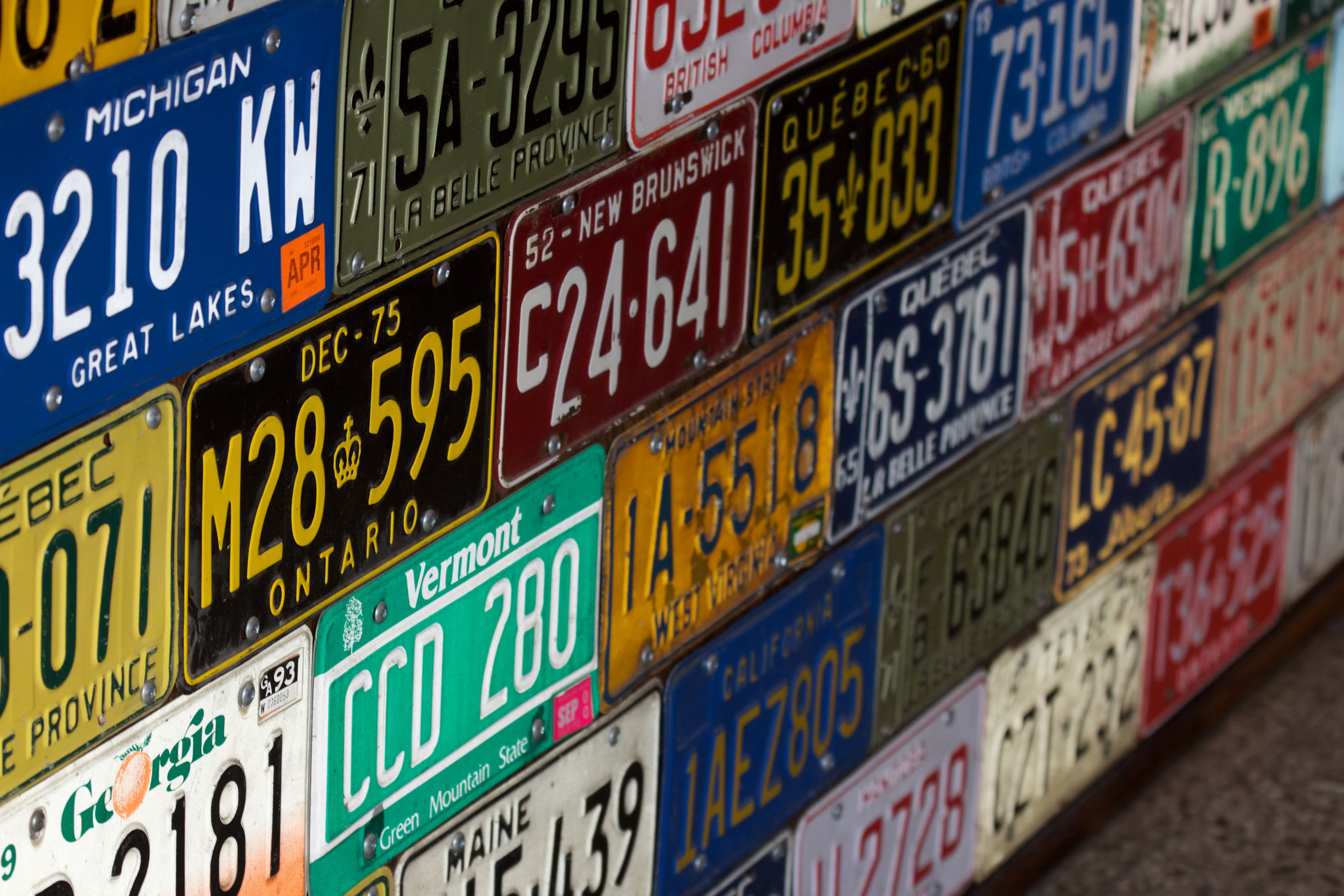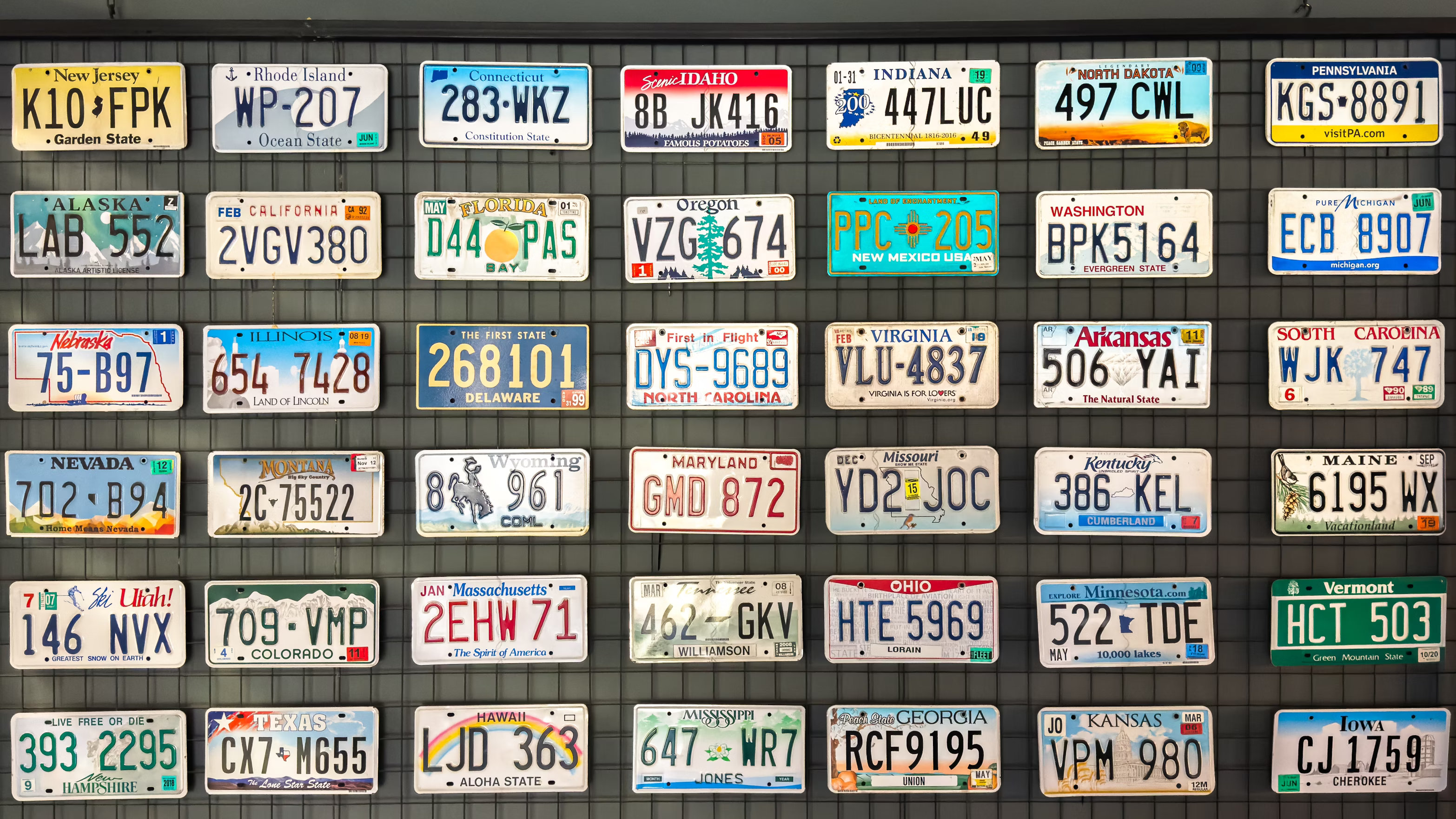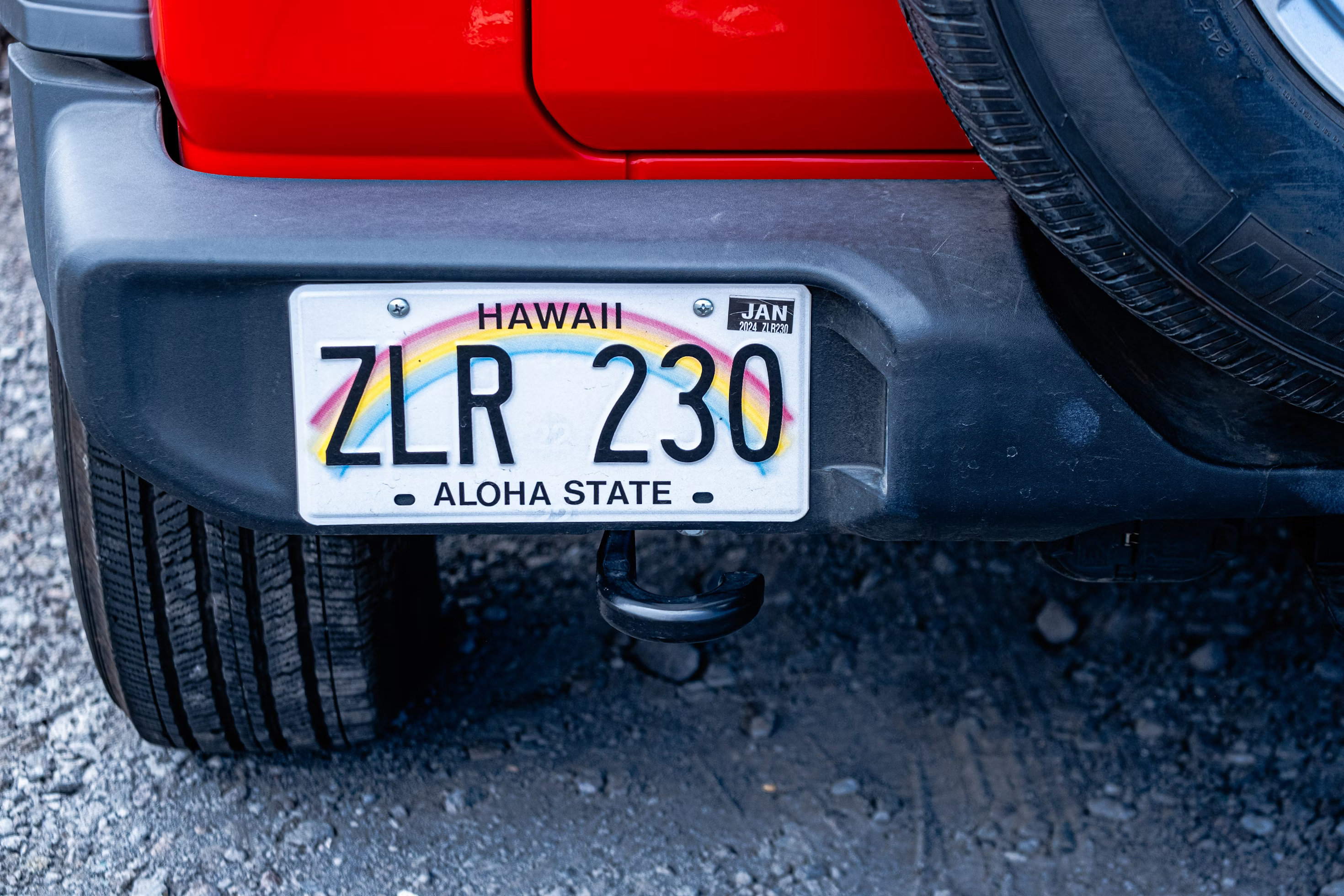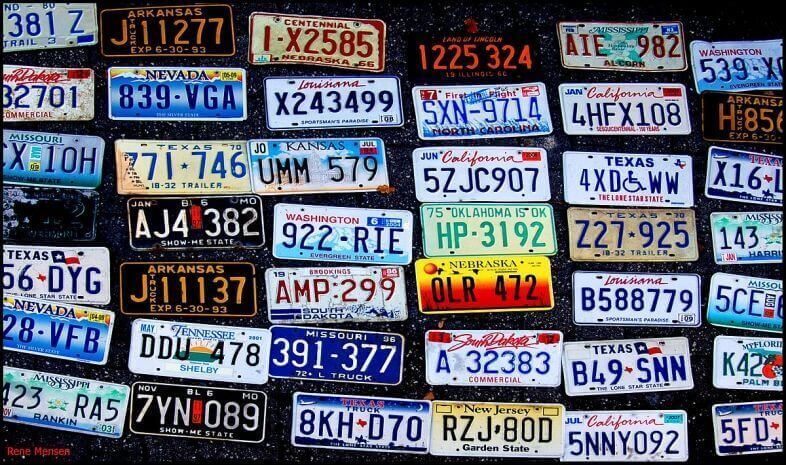The Division of Motor Vehicles issues license plates as a form of official identification for vehicles. Every state has its own rules on how plates should be handled when they’re no longer in use. Some states require you to return them, while others allow you to recycle or transfer them to another vehicle. Ignoring these rules could lead to fines or legal trouble.
Planning to sell your car or replace your plates? This guide is for you if you’re looking for answers to these questions:
- Should you return the old plates, or can you keep them?
- How do you properly dispose of expired or unused plates?
- What would happen if you left a license plate accidentally and the car was used in a crime?
Ready to find out what’s legal and what’s not, or what law applies to your state regarding plate transfer? We break it all down so you know exactly what to do.

What to Do With Old Plates After Selling a Car
Wondering what to do with license plates after selling a car? Well, you want to research what you should do with the plates before selling your vehicle. This is because, in some states, you must leave them on the car for the next owner. In other parts of the USA, you need to remove them before you transfer ownership, and the buyer needs to register the car with new plates from the DMV. So, what to do with license plates when selling a car? It depends on the state you live in.
Accurately informing your state that you've sold your car or transferred your license plates is critical because it informs them that you're no longer responsible for or associated with your old vehicle. According to most state laws, you should remove them before handing over the car to the new owner. You must keep them on in some states when you sell new plates. Some will allow you to keep the plates and then transfer them to a new car.
Generally, depending on the state, the DMV will either let you keep the old plates, mandate you to return them, or advise you to destroy them.
Here’s an example of five states with differing rules on old license plates.
What to Do With Old License Plates in Pennsylvania
When you receive a new license plate in Pennsylvania, you should remove the old one immediately and either return it to the Pennsylvania Department of Transportation (PennDOT) or properly dispose of it.
To return your plate, mail it to the Bureau of Motor Vehicles, Return Tag Unit, P.O. Box 68597 in Harrisburg. If you prefer, you can destroy and recycle it yourself. Can you keep old license plates? While it's not illegal, keeping an unused plate could lead to legal issues if stolen and misused. Always follow PennDOT guidelines to avoid fines or complications.
What to Do With Old License Plates in Florida
You must remove the license plates before transferring them to your new vehicle. If you aren’t using them, return them to the Florida Department of Highway Safety and Motor Vehicles. Keep in mind that failing to return it could result in your driver's license being suspended.
Please remember that license plates belong to the state and must be returned. Florida license plates should be disposed of by returning them to a motor vehicle service center with a request to cancel and recycle the plate.
What to Do With Old License Plates in Ohio
License plates belong to the person who owns them and can be kept, destroyed, or transferred to another vehicle. The Ohio Bureau of Motor Vehicles can help you transfer them to a new vehicle.
You can transfer a license plate to a new car if it is in the same class as your old one, but be sure to remove your old plates first. You can also contact the Ohio Bureau of Motor Vehicles to cancel your registration and surrender your license plates.
What to Do With Old License Plates in Illinois
The Secretary of State does not require the old and unused license plates to be returned. However, the Illinois Secretary of State's office has launched a program to recycle expired or obsolete license plates. Residents can recycle their old license plates by bringing them to a Secretary of State location and depositing them in tamper-proof bins.
What to Do With Old License Plates When Selling a Car in Texas?
When selling a car in Texas, you must remove the license plates from the vehicle. Before handing over the keys, remove the plates and the registration sticker. The license plate can be transferred to another vehicle you own for free.
The County Clerk will issue you a new registration sticker after you transfer your plates. If you are no longer going to use the plates, you must surrender them to your local Texas tax assessor or collector.

How to Get Rid of Old License Plates
With all these different state-to-state regulations, you may be wondering, “how do you get rid of license plates?” Specific instructions on how to recycle license plates should be available from your state's vehicle licensing department or DMV. In essence, you have three choices.
First, you can personally go to your local DMV to return old license plates.
Second, you can mail the old plates to your vehicle licensing office. Each state's website should include a mailing address for returning old license plates.
Third, place them in the aluminum recycling bin at your local recycling center. When disposing of old license plates, be sure to remove all the month and year decals. It's also recommended to damage the plates so that no one else can use them. This includes bending or cutting them up to the point that if someone tried to put them in their car, a police officer would pull them over and ask them about it.
Keep in mind that if someone steals your license plate and puts it on their vehicle, the police will contact you if the vehicle is involved in a crime.
Should I Remove the License Plates When Selling My Car?
Most states mandate that when you sell your car, you must remove the license plates before the deal is done. You then have the option to turn in license plates to unregister a car or destroy it when not needed.
While a few states treat license plates as parts of the car, they should remain even after selling. Here’s a list that can serve as your quick reference on what to do with your car’s plates after selling it.
You should remove license plates when selling your car in most states. The table below provides a breakdown of states where you have to or don’t have to remove your plates. Take a look.
Note that we’ve included the Federal District of Columbia.
Remove | Keep |
Alabama | Alaska |
Arkansas | Arizona |
Colorado | California |
Connecticut | Delaware |
District of Columbia | Hawaii |
Florida | Minnesota |
Georgia | Kentucky |
Idaho | North Dakota |
Illinois | Oklahoma |
Indiana | |
Iowa | |
Kansas | |
Louisiana | |
Maine | |
Maryland | |
Massachusetts | |
Michigan | |
Mississippi | |
Missouri | |
Montana | |
Nebraska | |
Nevada | |
New Hampshire | |
New Jersey | |
New Mexico | |
New York | |
North Carolina | |
Ohio | |
Oregon | |
Pennsylvania | |
Rhode Island | |
South Carolina | |
South Dakota | |
Tennesssee | |
Texas | |
Utah | |
Vermont | |
Virginia | |
Washington | |
West Virginia | |
Wisconsin | |
Wyoming |
Some states, like Virginia, don’t obligate car owners to return their plates when removing them from the car. However, they must render them useless or in safekeeping for their own protection.
Can I Use My Old License Plate on My New Car?
Personally, I would like to keep my license plate when I buy a new car, and I’m sure many of you would too. Thankfully, most states allow you to use your old license plates on new vehicles.
As long as your new vehicle is of the same class, you should be able to transfer the plates. As a result, you won't be able to transfer your old car's license plate to your new pickup truck. You can even apply the remaining registration credit to your new vehicle. You can cancel the registration and surrender the plates to your state's DMV if you keep them but decide not to use them.
Here’s a breakdown of each state’s ruling on transferring plates.
State | STANDARD PLATES | SPECIAL / PERSONALIZED PLATES | ||
Yes | No | Yes | No | |
Alabama | ✔️ | ✔️ | ||
Alaska | ❌ | ✔️ | ||
Arizona | ✔️ | ✔️ | ||
Arkansas | ✔️ | ✔️ | ||
California | ❌ | ✔️ | ||
Colorado | ✔️ | ✔️ | ||
Connecticut | ✔️ | ✔️ | ||
Delaware | ✔️ | But, if the new owner lives in Delaware, the plates stay on the car | ✔️ | But, if the new owner lives in Delaware, the plates stay on the car |
District of Columbia | ✔️ | ✔️ | ||
Florida | ✔️ | ✔️ | ||
Georgia | ✔️ | ✔️ | ||
Hawaii | ❌ | ❌ | ||
Idaho | ✔️ | ✔️ | ||
Illinois | ✔️ | ✔️ | ||
Indiana | ✔️ | ✔️ | ||
Iowa | ✔️ | ✔️ | ||
Kansas | ✔️ | ✔️ | ||
Kentucky** | ❌ | ❌ | ||
Louisiana | ❌ | ✔️ | ||
Maine | ✔️ | ✔️ | ||
Maryland | ✔️ | ✔️ | ||
Massachusetts | ✔️ | ✔️ | ||
Michigan | ✔️ | With an option to retain plates on an old car if a new owner is a family member | ✔️ | With an option to retain plates on an old car if a new owner is a family member |
Minnesota | ❌ | ✔️ | ||
Mississippi | ❌ | ❌ | ||
Missouri | ✔️ | ✔️ | ||
Montana | ✔️ | ✔️ | ||
Nebraska | ❌ | ❌ | ||
Nevada | ✔️ | ✔️ | ||
New Hampshire | ✔️ | ✔️ | ||
New Jersey | ✔️ | ✔️ | ||
New Mexico | ✔️ | ✔️ | ||
New York | ✔️ | ✔️ | ||
North Carolina | ✔️ | ✔️ | ||
North Dakota | ✔️ | ✔️ | ||
Ohio | ✔️ | ✔️ | ||
Oklahoma | ✔️ | ✔️ | ||
Oregon | ✔️ | ✔️ | ||
Pennsylvania | ✔️ | ✔️ | ||
Rhode Island | ✔️ | ✔️ | ||
South Carolina | ✔️ | ✔️ | ||
South Dakota | ✔️ | ✔️ | ||
Tennessee | ✔️ | ✔️ | ||
Texas | ✔️ | ✔️ | ||
Utah | ✔️ | ✔️ | ||
Vermont | ✔️ | ✔️ | ||
Virginia | ✔️ | ✔️ | ||
Washington | ✔️ | ✔️ | ||
West Virginia | ✔️ | ✔️ | ||
Wisconsin | ✔️ | ✔️ | ||
Wyoming | ✔️ | ✔️ | ||
How to Cancel License Plates
Each state has a different process for how to unregister a car. This step is essential when selling your car because it releases you from any obligations to the vehicle.
But for most states, when it comes time to sell your car, all you have to do is take off your license plates. Then, immediately take them to the DMV, turn them in, and notify the DMV that your vehicle has been sold. The car will no longer be associated with you in the state's system, and your registration will be canceled.
If you sell your car, you may be required to surrender your license plate and cancel your registration in some states. This informs the DMV that you no longer own the vehicle, allowing you to avoid paying taxes and other fees associated with it. The next portion of this article shows which states require you to return license plates.
Online services make cancellation easier; for instance, there are more and more states that offer online portals for remote processing.
How to Cancel Car Registration in California
The license plates stay with the car even after you sell it. Personalized plates can be transferred to a new car through the California DMV by filing a Notice of Transfer and Release of Liability form. Both forms can be accomplished using the online services of the DMV.
You should cancel your registration if your car is not running anymore, and you have no wish to have it repaired, or if you don’t have another vehicle to transfer it to.
How to Cancel License Plates in Illinois
You must complete the Illinois Secretary of State Vehicle Registration and/or Title Revocation Request form to cancel plates and unregister your car. Include important details such as vehicle identification number and other registration info. Create a copy of the form for reference and send the original letter via email or snail mail.
There’s no need to return the plates, but it is advised that you destroy and recycle them for your own protection.
How to Cancel License Plates Online
Not all states permit online cancellation of license plates; however, several do offer this convenience. Here's how to proceed in some states:
- Connecticut: Residents can cancel their vehicle registration and plates online through the Connecticut DMV's official website. You'll need your personal details, license plate number, and a credit or debit card.
- Massachusetts: The Registry of Motor Vehicles allows online cancellation of vehicle registrations. Required information includes your license plate number and either your driver's license number, Social Security Number, or FID number.
- Georgia: Vehicle owners can voluntarily cancel their registration online if the vehicle has been sold, is not being driven, or is no longer operable. It's recommended to cancel your registration before canceling insurance coverage to avoid fines and penalties.
- South Carolina: The SCDMV provides an online option for returning license plates. Ensure you have your plate number and personal details ready.
Procedures vary by state, so it's essential to consult your local DMV or equivalent agency's website for specific instructions. But can you throw away old license plates if you don’t have to turn them in physically? No! You are still expected to dispose of them properly.

What States Require You to Return Your License Plates?
In some states, you can transfer your license plate to another vehicle you buy or already own when you sell your car. You can return your plates to your local DMV office if you no longer need them.
Returning your old plates is mandatory in some states, while in others, they allow you to keep them as long as you make sure that it’s not used for crime. You also have the option to destroy your old license plates or have them recycled.
States that require you to return your license plates are Connecticut, Delaware, District of Columbia, Florida, Iowa, Maine, Maryland, Mississippi, Montana, Nebraska, Nevada, New Jersey, New Mexico, New York, North Carolina, Pennsylvania, Rhode Island, Virginia, West Virginia, and Wyoming.
States that don’t require returning your license plate (but may still require you to dispose of them properly) are Alabama, Alaska, Arizona, Arkansas, California, Colorado, Georgia, Hawaii, Idaho, Illinois, Indiana, Kansas, Kentucky, Louisiana, Massachusetts, Michigan, Minnesota, Missouri, New Hampshire, North Dakota, Oklahoma, Ohio, Oregon, South Carolina, South Dakota, Utah, Tennessee, Texas, Vermont, Washington, Wisconsin, and Wyoming. Most of these states, however, do not allow you to sell a vehicle with your license plate.
How Long Do You Have to Turn in Your License Plates?
You may be required to surrender license plates to your local DMV if you no longer need them. Here’s a table to guide you on when to surrender your plates, depending on where you registered your vehicle.
State | # of Days | State | # of Days |
Alabama | N.A. / Not required | Missouri | N.A. / Not required |
Arizona | N.A. / Not required | Nebraska | 60 |
Arkansas | N.A. / Not required | Nevada | 30 |
California | N.A. / Not required | New Hampshire | N.A. / Not required |
Colorado | N.A. / Not required | New Jersey | |
Connecticut | 30 | New Mexico | 30 |
Delaware | 30 | New York | 90 |
District of Columbia | 60 | North Carolina | 60 |
Florida | 30 | North Dakota | 30 |
Georgia | N.A. / Not required | Ohio | N.A. / Not required |
Hawaii | N.A. / Not required | Oklahoma | 30 |
Idaho | N.A. / Not required | Oregon | N.A. / Not required |
Illinois | N.A. / Not required | Pennsylvania | 30 |
Indiana | N.A. / Not required | Rhode Island | 90 |
Iowa | 30 | South Carolina | N.A. / Not required |
Kansas | N.A. / Not required | South Dakota | 90 |
Louisiana | N.A. / Not required | Texas | N.A. / Not required |
Maine | Utah | N.A. / Not required | |
Maryland | 42 | Vermont | N.A. / Not required |
Massachusetts | N.A. / Not required | Virginia | 60 |
Michigan | N.A. / Not required | Washington | N.A. / Not required |
Minnesota | N.A. / Not required | West Virginia | 30 |
Mississippi | 30 | Wisconsin | N.A. / Not required |
Wyoming | 45 |
What Happens If You Don't Return License Plates?
For states that don’t require you to return your plates, just make sure that the plates are expired, inactive, or canceled. You own the plates, so you have the freedom to do whatever you want as long as you take the necessary precautions.
Failure to surrender your license plate when you sell your vehicle will result in a driver’s license suspension. When you surrender your plate, a new vehicle registration will be issued, indicating that the old license plate is canceled.
When you surrender your plates, your local DMV receives a notice from insurance companies that your insurance has been canceled. As a result, you may be audited to provide proof of valid liability insurance from the date of cancellation. If it is determined that you were uninsured, you will be penalized.
What to Do If You Forgot to Take License Plate Off When Selling a Car
Many states require you to remove your plates; if it is a requirement, it’s imperative. In some states, like Illinois, if you sell a car with old car license plates still on, they can suspend your license. If you didn’t do your research before you sold the car and made this mistake, your best (and only) option is to contact the buyer and ask them to remove the plates and send them back to you.
In some cases, you might be able to cancel the plate through the DMV. You may get fined, but it’s better than having your license suspended. In order to do this, you will need the necessary paperwork that proves you sold the car (like a bill of sale).
Also, forgetting to remove your plate can lead to “title jumping” if the buyer brings the car to another state. When the title “jumps” from you to the buyer without updating the records, it’s a felony in all states, and it's something you could avoid by taking off your plates before selling. If you failed to remove the plates, ask the buyer to remove them for you and send them back.
Can I Actually Sell My Car License Plates?
If you’re wondering what to do with old car license plates after you get rid of your car, you may be wondering if you can sell them. The answer depends on which part of the US you live in.
For states requiring you to return your old plates, it would be illegal to sell them. But if you are not required to surrender your plates, selling can be an option.
Generally, the older the plate, the better the condition, and the smaller the population of the state or other issuing jurisdiction at the time the plate was issued, the more the plate will probably be worth. You should also do the necessary paperwork to cancel or unregister the unwanted plates before you get rid of them. If a plate you sold was attached to a car used to commit a crime, you could be liable if the plates are still active.
If you’re going to post your plates on eBay, here’s their policy regarding selling license plates. “Collectible license plates are allowed as long as they are expired and at least three years old or as allowed by law”.
Sell Your Car Fast and Easy With JunkCarsUs
If you’re ready to sell your old car for cash, you’ve come to the right place. With over 12 years in the junk car buying business, JunkCarsUs will provide you with a hassle-free way to sell your car with a mechanical problem or any amount of damage, even if it’s completely totaled.
Our extensive experience has devised a simple three-step process to get rid of your junk car. Let’s take a look.
- Contact us! Give us a call at (855) 547-1550 or fill out an online application. When you give us the necessary information—the make, the model, the year, the mileage, and the condition—of your car, we’ll give you a top-dollar instant offer on the spot. Or you can junk car value calculator with our scrap car value calculator and get an offer in less than 90 seconds.
- Accept our offer. We know you’ll be happy with our offer because JunkCarsUs offers the highest price guarantee out of any junk car buyer in the US. And once you have our offer, we’ll never try to go back on our word. The cash amount we offer you is the cash amount you receive because there are no hidden fees. This includes…
- Free towing. When you agree to our offer, give our friendly sales representative the location of your junk car and a time that’s most convenient for you. We can even do same-day pickup in some cases! One of our trusted tow truck drivers will arrive on time and safely take your junk car away and give you the cash in hand.
If you’re wondering about paperwork — don’t! Our experts know exactly what information goes where. We'll fill it out with the information you give us over the phone and have it ready for you to sign on the dot. That’s all you have to do! And if you’re still unsure about what to do with your license plates, we can give you the answers you need to make that completely painless, too.
So give us a call at (855) 547-1550 or fill out an online application today and get your top-dollar instant offer!
FAQ
How do I dispose of old license plates?
You have three options if you aren’t required to return the plates to the DMV or leave them on the car being sold. You can bring or mail them to the DMV, cancel them online, or dispose of them. If you use the last option, it’s recommended to damage the plates (cut them up, bend them, etc.) so that no one takes them and uses them without your knowledge.
What should I do with old plates after selling my car?
The choice is yours in states that don’t require you to turn them in. You can always return them to the DMV if you’re unsure. Or you can keep them in states that allow you to re-register them on your new car. You can also throw them away or recycle them.
Is it legal to sell old license plates?
This depends on one major factor: if you are required to return them to the DMV after selling your car. If you aren’t required to return them, you can sell them under certain conditions. If you do choose to sell them, it’s a good idea to notify your local DMV that they’re not yours anymore and unregister them from your name.





